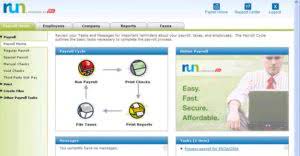![]()
Isaac Heller, CEO of Trullion, an AI accounting software, recommends working at an accounting firm or as a company’s in-house accountant first to get some practical experience. Then, each year, you must complete continuing education, as required by your state. “Having a CPA may require additional education and experience, but it’s also highly regarded and provides accountants with many career opportunities,” Barentzen says. The work environment for accountants can be fast-paced and dynamic, especially during busy periods such as tax season or financial reporting deadlines. Accountants may need to manage multiple tasks simultaneously, prioritize workloads, and meet tight deadlines while maintaining accuracy and attention to detail.
When You Have a Material Foreign Source of Income
When your cash reserve is large enough, you can (again) enlist the assistance of your personal accountant to help you invest it. Have you ever gone shopping for a dress and returned with shoes as well? Or went on a “budget trip” and returned with an empty wallet/purse? It happens to everyone, and sometimes more frequently than you’d like. Whether you’re a big spender or an impulse buyer, a personal accountant can help you break the habit and better manage your money. While this can save you time, this can also give you peace of mind as you would know that your savings accounts and investments are well taken care of.

What are the golden rules of accounting?
Here are some details on which type of accountant is best for specific needs. Or maybe you’ve started your own business or taken up a side hustle. Along with the happiness of earning what does a personal accountant do more comes the responsibility of making sure your money is working as hard as you are. Keeping the CPA designation requires completing a number of continuing education hours.

What Are the Responsibilities of a CPA?
You’ll need to earn a bachelor’s degree for most accounting careers—generally in accounting, finance, economics, or your school’s equivalent. You can often get an entry-level job in accounting out of college, but many higher-level (and higher-paying) accounting jobs require a CPA license. For instance, KPMG, one of the “Big Four” accounting firms, launched the CPA Kickstart program, which offers new employees a full-time salary with benefits for two months to study for parts of the exam. Ernst & Young’s EY Career Path Accelerator Program provides courses to help people entering the field reach the 150 credit hours needed for the CPA exam. Your accountant will identify the cost of holding inventory and come up with strategies to save some of that money.
What are some common software and tools used by accountants?

An accountant also ensures regulatory compliance, assists in strategic financial planning, conducts audits, and offers expert advice on tax-related matters. There are various types of accountants, including public accountants, management accountants, government accountants, forensic accountants, https://www.bookstime.com/ and auditors, each serving different needs. Public accountants provide a variety of accounting services to individuals, businesses, and government agencies. Finally, and perhaps most importantly, a personal accountant examines financial records for accuracy and legal compliance.
- Lenders obviously need to see solid financials and credible forecasts, but that’s just the beginning.
- People who find themselves with several thousands of dollars of debt on April 15 are usually those who are self-employed or have multiple sources of income.
- It’s important to note that states have different CPE requirements and deadlines.
- For example, “accountant” and “bookkeeper” are phrases that are sometimes used interchangeably, yet there are several key differences between these job titles.
- Keep in mind that your personal bookkeeper will not follow you around recording every transaction you make (of course, unless you ask them to).
Personal Accountant vs. Financial Advisor: What’s The Difference?
Because if they can’t solve your business problem themselves, they’ll know who can. The easy answer used to be that they wore suits and sat behind big desks. Many modern accountants have interesting backgrounds and will come into your workplace to see how your business actually works. This is one of the most important things an accountant can do for you. Automating business processes takes away pain, lowers costs and ensures everything runs smoothly.